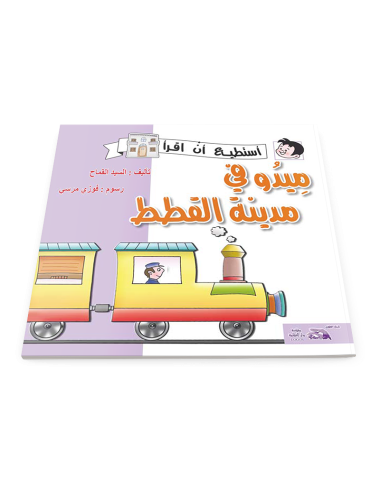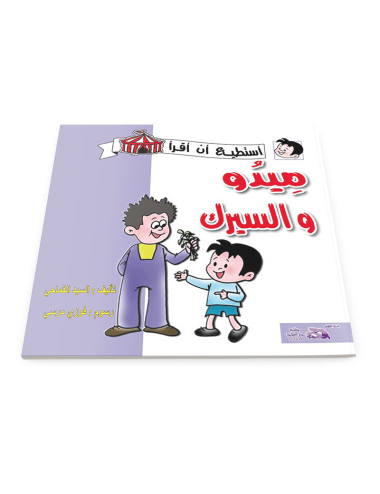The Smart Monkey
A little monkey did not listen to his mother and unfortunately he lost his way! What to do? Does he find a solution? Is he able to think?
0.054 kg - 100 kg
A little monkey did not listen to his mother and unfortunately he lost his way! What to do? Does he find a solution? Is he able to think?
Mido has a dream. Mido is very surprised about what he sees. What is happening?
The Circus keeps Mido and his friend busy. Every day new adventures! It is fun to be at the circus. Mido and Amgad are friends, but they are not the same in the way they deal with everything. What is Mido facing? How does Amgad deal with it?
Mido loves animals. When he sees a cat in need of help, he talks to his mother. Can he care for the cat in the house? Isn't that strange? What is the answer of his mother?
John Gerassi had just this opportunity as a child, his mother and father were very close friends with Jean-Paul Sartre and Simone de Beauvoir and the couple became for him like surrogate parents. Authorized by Sartre to write his biography.
Through the interviews with both their informalities and their tensions, Sartre’s greater complexities emerge. In particular we see Sartre wrestling with the apparent contradiction between his views on freedom and the influence of social conditions on our choices and actions. We also gain insight into his perspectives on the Spanish Civil War, World War II, and the disintegration of colonialism.
This story is about the Circus which is built next to Mido's neighbourhood. Mido has never seen a Circus before.
The fox is mean, he is a big lieer, he is not honest at all! Unfortunately the bear is so good to trust the fox and has no idea of his bad intentions. What will happen? What will come out of this friendly conversation?
An examination of childhood trauma and its surreptitious, debilitating effects by one of the world's leading psychoanalysts.
Never before has world-renowned psychoanalyst Alice Miller examined so persuasively the long-range consequences of childhood abuse on the body. Using the experiences of her patients along with the biographical stories of literary giants such as Virginia Woolf and Marcel Proust, Miller shows how a child's humiliation, impotence, and bottled rage will manifest itself as adult illness―be it cancer, stroke, or other debilitating diseases. Miller urges society as a whole to jettison its belief in the Fourth Commandment and not to extend forgiveness to parents whose tyrannical childrearing methods have resulted in unhappy, and often ruined, adult lives.
Hope is to raise the spirits and arm themselves in the face of all the frustrations that surround modern man
Berdyev's life was nothing but a triangular struggle against the aristocratic environment in which his family belonged and lived in it, against the revolutionary Marxist environment in which he lived during his first youth and against the orthodox environment in which he lived a mature period in a certain sense.
Reidar Thomte's Kierkegaard's Philosophy of Religion is an excellent read for students beginning their study of one of the "greats" of the nineteenth and twentieth century philosophy. Thomte directly appropriates Kierkegaard's insightful language and discussion of theological and philosophical issues that stimulated him, all of which are still alive and well today.











